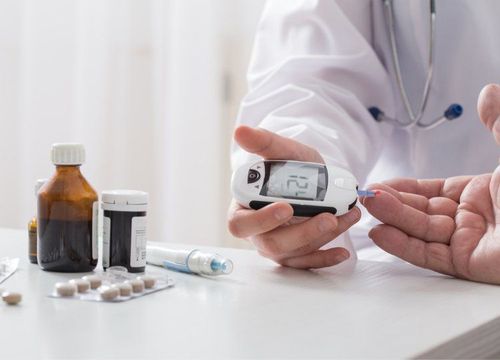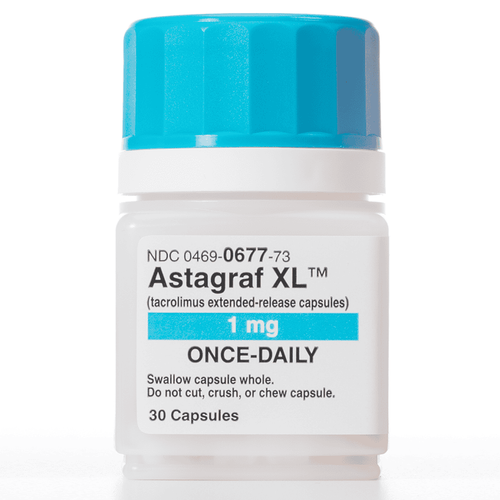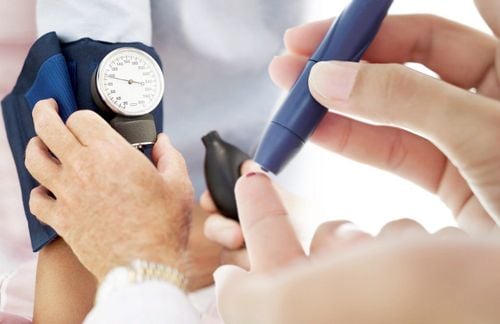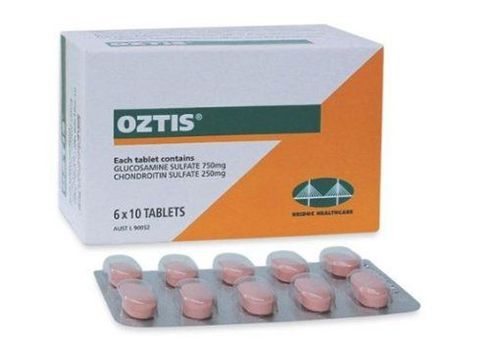This is an automatically translated article.
The article is professionally consulted by Master, Doctor Vu Thi Duyen - Department of Medical Examination & Internal Medicine - Vinmec Hai Phong International General HospitalDiabetes is not a sudden illness, it is often a gradual progression of pre-diabetes. When we detect it at an early stage and make appropriate early lifestyle changes, we can reverse prediabetes and the disease does not have a chance to develop into diabetes. However, this alarm bell is very few people can recognize because the symptoms of pre-diabetes are very faint even if they are only accidentally discovered during a routine health check-up or treatment for another disease that is unintentional. love discovered.
1. Risk of diabetes
Type 2 diabetes usually doesn't come on suddenly, but it goes through a long development of pre-diabetes. This is the stage when blood sugar levels are higher than normal but not high enough to cause symptoms or not meet the criteria for a diagnosis of type 2 diabetes. That is why the risk of developing type 2 diabetes increases. can still be prevented in time and reversed with early intervention. Therefore, pre-diabetes should be seen as a wake-up call for those who are at risk of developing type 2 diabetes.Unfortunately, however, very few people have ever heard the sound. alarm or consult an endocrinologist. A report by the Centers for Disease Control and Prevention found that among Americans age 20 and older, only 10% of those with prediabetes knew they had the disease. An estimated 73 million Americans have pre-diabetes, and the number of patients with diabetes will be huge if they miss opportunities to make timely dietary and lifestyle adjustments.
Another reason many people don't know they may be on the verge of diabetes is because they've never had a blood sugar test and because this simple test is often not part of preventive care common health. Therefore, the implementation of blood sugar screening screening with regular physical examination is a very important strategy for early detection of prediabetes. Since then, there have been timely corrective measures for people with pre-diabetes signs, significantly contributing to reducing the number of cases of type 2 diabetes and reducing treatment costs later.

Bệnh tiền đái tháo đường có thể là nguyên nhân gây ra bệnh đái tháo đường
2. Expanding the pre-diabetes screening network
The American Diabetes Association and other organizations recommend routine blood sugar testing in people at high risk for diabetes, including the following groups: people over 45 years of age, young adults were overweight or obese and had one of the diabetes risk factors such as little or no physical activity, a family history of diabetes, high blood pressure or high cholesterol, had been diagnosed with cardiovascular disease or polycystic ovary syndrome, had gestational diabetes, also known as gestational diabetes, or had a heavier-than-normal baby.
Béo phì làm tăng nguy cơ mắc bệnh tiền đái tháo đường
3. The message that everyone needs to remember
Not everyone with pre-diabetes will develop diabetes, but there is a small rate of return to normal if pre-diabetes is detected early and treated early by adjusting the regimen. eat, live a suitable lifestyle. Over a period of about 3 to 5 years, about 25% of people with prediabetes develop diabetes. Therefore, if we receive a warning about pre-diabetes, it will be very helpful for our health to take appropriate preventive measures early. Effective early interventions are: moderate weight loss, increase physical activity, such as walking 30 minutes a day, and choose a healthy, low-sweet, low-glucid, low-carbohydrate diet. fat, increase green vegetables, vitamins, especially drink lots of water. Not only does this help prevent diabetes, it can help protect against heart attacks, strokes, osteoporosis and a host of other chronic diseases.Diabetes, once developed, can cause many dangerous complications for the body such as eyes, heart, kidneys, brain. Extra glucose can change the way blood vessels work, increasing your risk of having a heart attack, stroke, or other forms of cardiovascular disease. Diabetes-related damage to small blood vessels can lead to blindness, kidney disease and loss of sensation - the leading cause of infections and difficult-to-treat amputations in the US .
Raise awareness to let everyone know that diabetes may be looming in all of us and paying attention to the signs can help fight the diabetes pandemic.
At Vinmec International General Hospital, we always deploy a screening package for diabetes and dyslipidemia to help detect pre-diabetes early, accurately classify diabetes type, develop a nutritional regimen, monitoring to minimize the risk and complications caused by diabetes.
Please dial HOTLINE for more information or register for an appointment HERE. Download MyVinmec app to make appointments faster and to manage your bookings easily.
Reference source: health.harvard.edu













